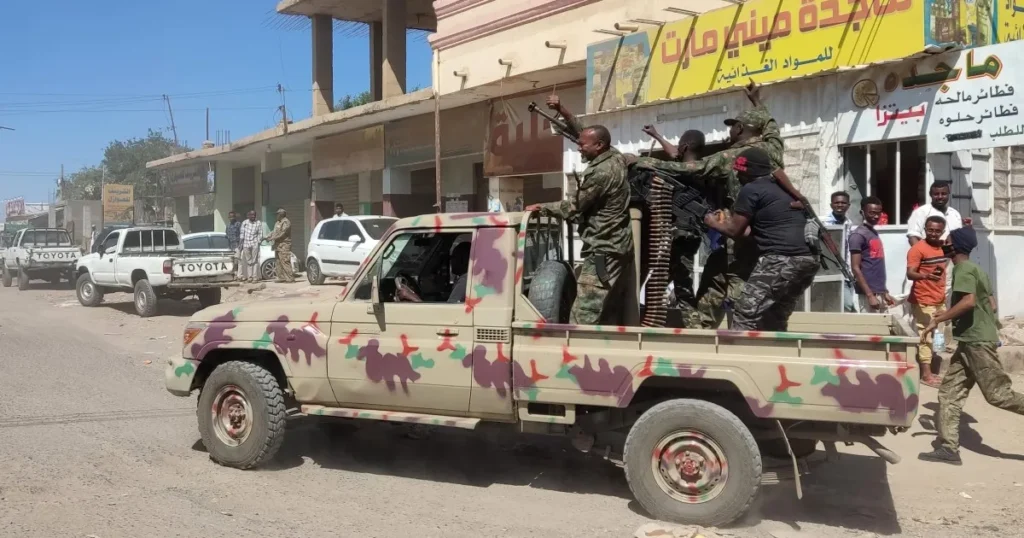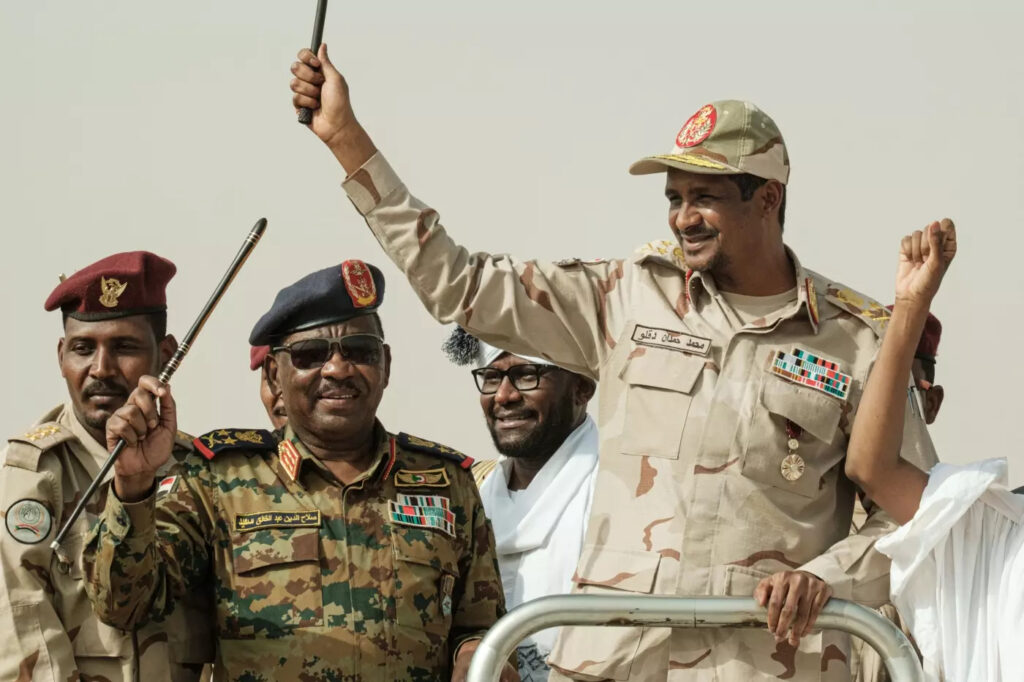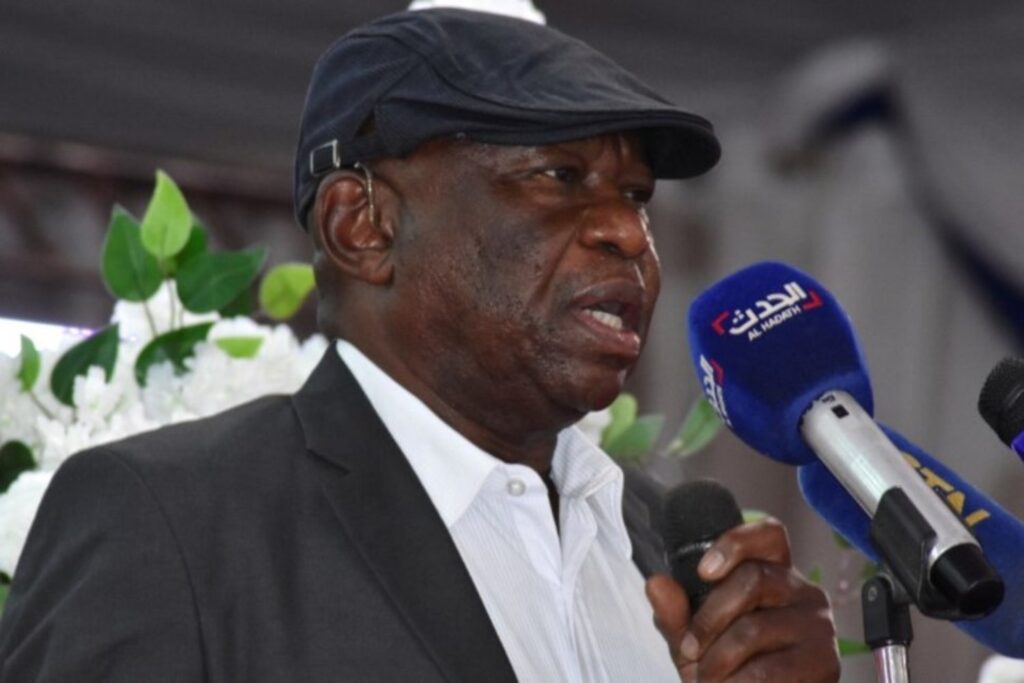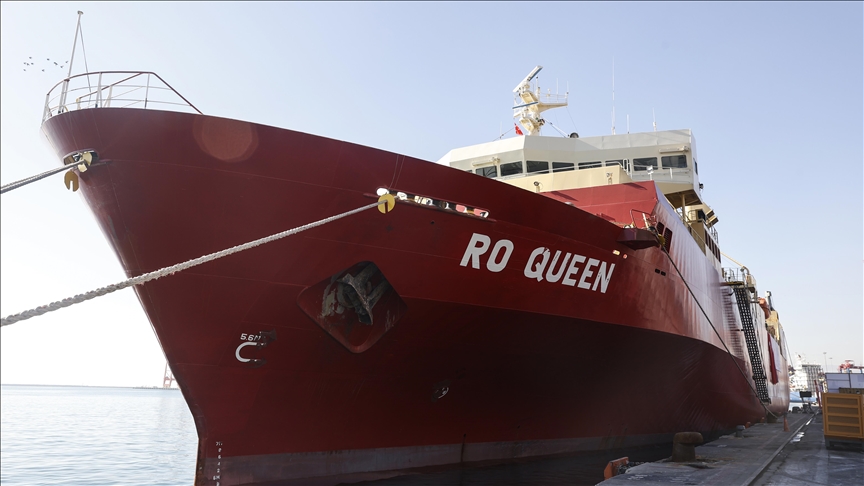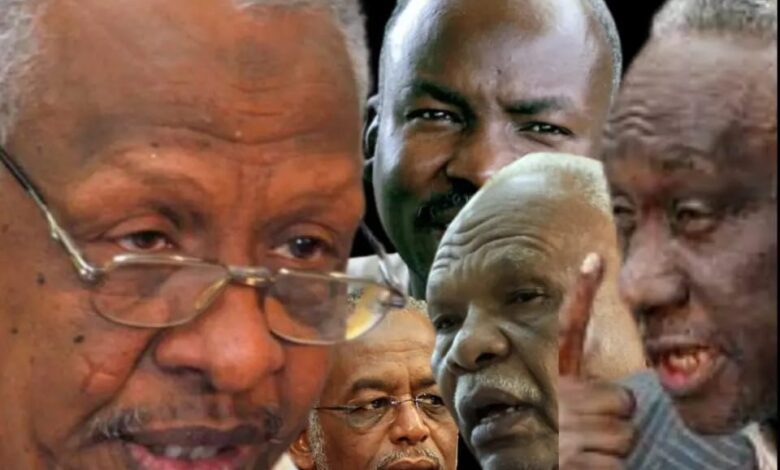
With Sudan’s war between General al-Burhan’s army (SAF) and Rapid Support Forces (RSF) entering its third year, political and civil society groups are intensifying calls to label the dissolved National Congress Party (NCP) and Sudan’s Islamist Movement as terrorist organisations. Advocates say the two groups have played a central role in fuelling the conflict, obstructing peace efforts, and embedding themselves within the SAF to stage a political comeback.
The Islamist Movement, which dominated Sudan under Omar al-Bashir until his 2019 ouster, reorganised during the transitional period and backed the SAF’s October 2021 coup against the civilian government. Since the war erupted in April 2023, Islamist-aligned militias have fought alongside the SAF against the RSF. International and local reports accuse both sides of committing atrocities against civilians.
Earlier this month, the Civil Democratic Forces Coalition (Samoud) launched a campaign to secure domestic and international designation of the NCP and the Islamist Movement as terrorist entities, citing a record of coups, anti-democratic policies, genocide, support for terrorism, and systemic corruption. The coalition argues these groups use violence as their primary means to retain power and reject peaceful solutions.
Analysts and activists interviewed by Sudanese outlet al-Taghyeer offered varied perspectives:
- Some see the designation as essential to accountability, given the movement’s role in igniting the war.
- Others argue the focus should be broader, including certain civilian actors accused of escalating the conflict.
Human rights lawyer Osman Hassan Saleh noted that terrorist designation requires legal and procedural rigor, ideally under an independent government — a condition absent while Islamists maintain influence in state institutions. He cited the movement’s 1989 coup, its role in the 1995 assassination attempt on Egypt’s Hosni Mubarak, the violent dispersal of the 2019 Khartoum sit-in, and the October 2021 coup as evidence.
Political analyst Shawqi Abdel Azim said the Islamists’ reliance on violence and their creation of militias such as the Baraa and Shadow Brigades mirror the patterns seen in armed Islamist groups targeted in Algeria, Egypt, the UAE, Saudi Arabia, and Jordan.
Analyst Ihab Madbo added that new evidence of the movement’s involvement in the April 15, 2023 war could prompt a decision within weeks to classify it as a terrorist organisation — a move that could halt arms supplies, freeze assets, and weaken its military strength, potentially paving the way for a future peace deal.
Proponents frame the move as necessary to distinguish between legitimate, peaceful politics and the use of armed violence to seize power. Critics warn that deep Islamist entrenchment in Sudan’s institutions and segments of society may complicate enforcement and risk further polarisation.

